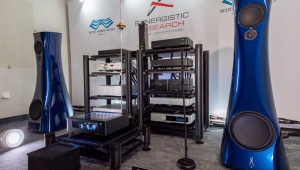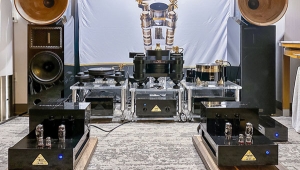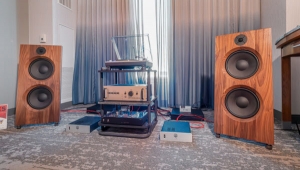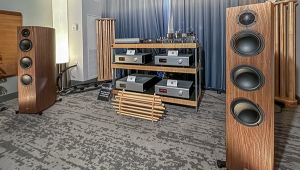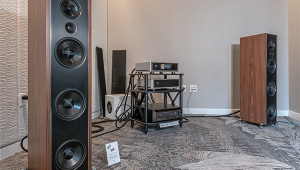| Columns Retired Columns & Blogs |
New Legislation Proposed to Restrict Fair Use
On our regular visit to the Electronic Freedom Foundation's (EFF) Deep Links website last Friday, we were alarmed to learn of proposed US Senate broadcast flag legislation that includes provisions to limit fair use to "customary historic use of broadcast content by consumers to the extent such use is consistent with applicable law."
That would seem to allow fair use, so why is it cause for alarm? The EFF's Fred von Lohmann has a crushingly simple response, "Had that been the law in 1970, there would never have been a VCR. Had it been the law in 1990, no TiVo. In 2000, no iPod." Von Lohmann argues that fair use was designed to permit new uses for technology, uses that hadn't been conceived of previously—such as Sony's discovery after the invention of the VCR that most people used it to time-shift television programs rather than play pre-recorded videocassettes, which is the way the company had assumed its product would be used.
The proposed legislation, sponsored by Senator Gordon Smith (R-OR), would retroactively ratify the FCC's broadcast flag regulations, which required content protection mechanisms in all future televisions. The FCC restrictions were rejected by the DC District Circuit Court of Appeals last July.
Senator Smith's bill would also grant the FCC authority to regulate the design of digital radios, which would include both terrestrial HD Radio and XM and Sirius satellite radio, over which it does not now have authority.
Are the EFF and von Lohmann over-reacting? Not according to Public Knowledge, which accuses the bill of "a little sleight-of-hand" in specifying that the FCC develop "objective criteria for approval by the Commission of methods of recording and Secure Moving Technology for material covered by the Broadcast Flag." Hmmm, what could Secure Moving Technology be? The bill defines it as "a technology that permits content covered by the Broadcast Flag to be transferred from a broadcast receiver to another device for rendering in accordance with customary historic use of broadcast content by consumers to the extent such use is consistent with applicable law and that prevents redistribution of copyrighted content over digital networks."
Thank you, Public Knowledge, for pointing out how that essentially "gives [the] FCC control over anything 'that permits content…to be transferred…to another device'"—including sticking a microphone in front of a speaker. (That's known as "the analog hole" and Congress has HR 4569 under consideration to "plug" it.)
PK concludes that this bill has nothing to do with piracy and everything to do with control. We concur. The entertainment industry has legitimate concerns about protecting the content that it provides, but the public also has rights, among them the right to expect that its governing body refuse to restrict technologies to those that already exist. To limit potential advances—or take a giant step backwards—simply because an existing industry hasn't the wit to encompass a paradigm shift is shortsighted and potentially crippling.
We encourage you to read Senator Smith's proposed bill and to visit the EFF's Action Center before the Senate Commerce Committee vote on January 24. Let the SCC know your concerns. If you live in Alaska, Arizona, Arkansas, California, Florida, Hawaii, Louisiana, Maine, Massachusetts, Mississippi, Montana, Nebraska, Nevada, New Hampshire, New Jersey, North Dakota, Oregon, South Carolina, Texas, Virginia, Washington, or West Virginia, you have a senator on the committee, but even if your representative isn't seated on the SCC, let the committee know you care.
- Log in or register to post comments

















